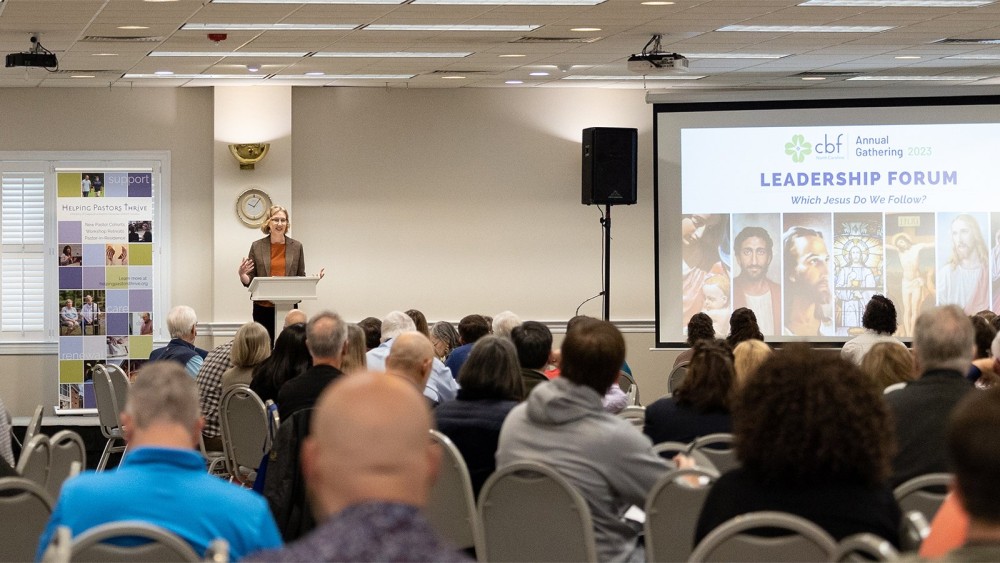'Purple church' pastors mull leadership strategies in polarizing times

Each Wednesday evening, a group of congregants from First Baptist Church of Mt. Olive, located about 65 miles southeast of Raleigh, North Carolina, gathers for a Bible study called “Tackling Tough Topics Together.” The 10 to 20 regulars have discussed race, human sexuality, and mental illness.
Those kinds of conversations are rare and becoming rarer at churches like First Baptist, which is affiliated with the Cooperative Baptist Fellowship, a network of congregations that offers a moderate alternative to the Southern Baptist Convention.
CBF-affiliating churches generally allow for women’s ordination and view the Bible as authoritative but not literal. They are distinguished these days by the diversity of their congregations, mostly White, but tending to be split nearly equally between Republican-leaning and Democratic-leaning voters.





